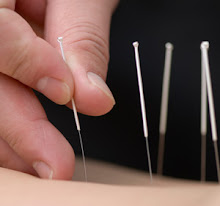Well, I am being snowed in today so it's a perfect opportunity to mess about at home. It was suggested to me after my Kuki entry yesterday to try my hand at roasting the twigs further, all good fun and the result being a heavily roasted tea!
I thought I would try my hand at roasting another twig that it used in more Oriental medicinal teas than any other hands down, gan cao or liquorice to the rest of us. It is used to tonify the Chinese concept of the spleen (a view which isn't just restricted to the Western spleen organ), moisten the Chinese 'lung' and also detoxifies and harmonises other herbs in formulas. Zhi gan cao is made by dry stir frying it with honey and is said to increase it's spleen and lung tonifying effects plus enhance it's effect on coughing.
The zhi gan cao supplied to me from my herb merchant is an industrially produced version that keeps for a long time, good for my stocks but it doesn't actually resemble real zhi gan cao. So with a dry wok in hand, some honey, liquorice and plenty of spare time I stirred away!
The results were very passable and even by itself quite tasty if not a little chewy. This, however, is a tea blog so I thought I would make some tea with it. My partner is a chronic spleen qi vacuity case borne out of her poor diet and overwork so with my new honey liquorice I prepared a batch of ren shen tang or ginseng decoction.
This tea is prepared in about a litre of water and boiled until about half remains which takes a good hour or so. It's an excellent tonic for those with poor digestion, loose stool and limbs that feel like they are lined with lead.
In this picture you can see the end result, the zhi gan cao on the left with the gan cao on the right. Preparing herbal medicinals is becoming a bit of a lost art nowadays, it's not really taught here in the West at colleges and most practitioners are buying their herbs in convenient granule forms that are easy to take. As well as honey roasting you can also prepare herbs with salt, vinegar, dried earth, baked; the list goes on. Tea bags destroy the enjoyment of the original plant, you don't get to touch, feel or smell it and it's the same with herbs.
Thanks for the suggestion to roast my Kuki! What if I honey roast ...
A fun experiment, in with the wok goes my more twiggy Kuki from Clearsprings, a dollop of honey and out she comes, my invention! Tetsubin at the ready I prepare the tea in one of my pots and I wait a few minutes to steep. The result? rather average if not slightly worst than rather average....
Still, one wouldn't know if one did not try.
Subscribe to:
Post Comments (Atom)










No comments:
Post a Comment